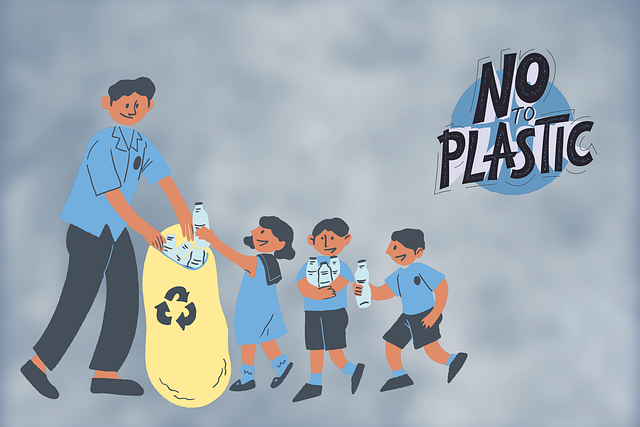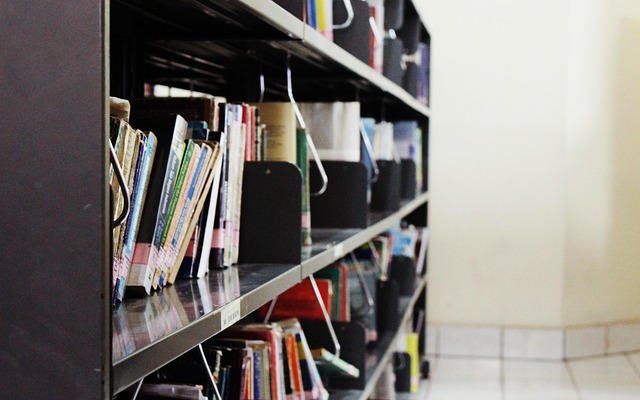Assessing current plastic usage is key to implementing sustainable restroom solutions in educational institutions. An audit identifies single-use plastics and excessive packaging, serving as a baseline for progress. Adopting refillable, reusable products, paperless toiletries, and digital signage reduces waste and promotes environmental awareness. Effective waste reduction strategies, including composting and recycling programs tailored for schools, enhance accessibility and minimize ecological footprints. Educating students about sustainable practices through workshops and curriculum integration significantly reduces the environmental impact.
In today’s digital era, it’s crucial for colleges and universities to embrace sustainable restroom solutions. This article offers expert advice on reducing plastic waste in bathrooms by implementing several strategic initiatives. We’ll guide you through assessing current plastic usage, transitioning to refillable and reusable products, adopting paperless toiletries and signage, fostering composting and recycling programs, and educating students on sustainable practices. These steps are essential to creating a greener and more eco-friendly campus environment.
- Assess Current Plastic Usage in Restrooms
- Implement Refillable and Reusable Products
- Adopt Paperless Toiletries and Signage
- Encourage Composting and Recycling Programs
- Educate Students on Sustainable Practices
Assess Current Plastic Usage in Restrooms

Assessing current plastic usage is a crucial first step in implementing sustainable restroom solutions for schools and universities. Start by auditing every item used in your facilities, from toilet paper dispensers to hand soap bottles. Identify single-use plastics and areas where excessive packaging or non-biodegradable materials are being utilized. This audit will not only highlight problem areas but also serve as a baseline for tracking future progress.
By understanding the current landscape of plastic waste in your restrooms, you can make informed decisions about introducing eco-friendly alternatives. For example, consider replacing traditional plastic soap bottles with refillable stations equipped with smart sensors that measure and control the flow of products, minimizing wastage. Similarly, explore low-cost, long-lasting infrastructure solutions like paperless towel dispensers or compostable toilet paper options to significantly reduce overall plastic consumption. These steps not only contribute to achieving environmental excellence but also demonstrate a commitment to cost savings for institutions focused on sustainable restroom management. Remember, the journey begins with taking stock of your current practices, which is where you’ll find us at restroom ventilation systems, ready to guide you towards greener alternatives.
Implement Refillable and Reusable Products

One effective strategy to reduce plastic waste in bathrooms at colleges is to implement refillable and reusable products. This simple switch can significantly cut down on single-use items like hand soaps, paper towels, and toilet paper rolls. Many schools are now embracing sustainable restroom solutions by introducing bulk refill stations for essential hygiene products. Students can bring their own containers or use reusable dispensers, reducing the demand for plastic packaging.
For instance, instead of individual bottles of hand sanitizer, consider installing large refilling stations. Similarly, cloth towels or hand drying machines can replace paper towels, minimizing waste generation. These sustainable restroom practices not only benefit the environment but also promote a culture of responsibility among students. By encouraging the use of reusable products, colleges contribute to a greener campus and inspire positive change, especially when combined with restroom education programs that raise awareness about plastic pollution.
Adopt Paperless Toiletries and Signage

Adopting paperless toiletries and signage is one of the most effective sustainable restroom solutions for schools and universities looking to reduce plastic waste. By transitioning to digital options, such as touch-free soap dispensers, air dryers, and electronic signage, institutions can significantly cut down on single-use plastic items like paper towels and disposable cups. This not only contributes to a greener environment but also provides budget-friendly eco-solutions that are easy to implement and maintain. Student feedback has shown that these sustainable restroom upgrades enhance the overall user experience while promoting an awareness campaign about reducing waste.
Moreover, embracing digital alternatives enables colleges to showcase their commitment to sustainability and engage students in environmental initiatives. By giving us a call at eco-friendly construction, schools can access green cleaning products tailored to promote such sustainable restroom solutions. These steps collectively foster a culture of responsibility towards the environment while ensuring that these upgrades are both cost-effective and well-received by the student body.
Encourage Composting and Recycling Programs

Implementing effective waste reduction strategies in bathrooms is an essential step towards creating sustainable restroom solutions for schools and universities. One powerful method is to promote composting and recycling programs tailored for this specific environment. By providing dedicated composting bins alongside recycling stations, institutions can encourage students and staff to adopt eco-friendly practices. Educational signage that highlights the benefits of composting and proper waste segregation can further foster these behaviors.
Additionally, integrating environmental safety and energy monitoring systems into restroom fixtures can contribute to a more sustainable future. Many universities are now adopting smart solutions that track water and energy usage, allowing them to identify areas for improvement. These initiatives not only promote accessibility but also ensure that restrooms cater to diverse needs while minimizing their ecological footprint. Visit us at restroom fixtures for universities anytime to explore innovative sustainable restroom solutions.
Educate Students on Sustainable Practices

Educating students on sustainable practices is an essential step toward achieving greener restroom solutions for schools and universities. Incorporating eco-conscious habits into daily routines can significantly reduce plastic waste generated in these areas. Start by organizing workshops or interactive sessions to raise awareness about the environmental impact of single-use plastics, such as toilet paper, hand dryers, and disposable wipes. Encourage students to adopt alternatives like reusable towels, compostable products, and smart sensors in school bathrooms that monitor water and energy usage, helping to conserve resources and minimize waste.
Promote a culture of sustainability by integrating these discussions into existing curricula, ensuring that students understand the broader implications of their choices. Implement pilot programs for sustainable restroom solutions, such as touch-free fixtures, low-flow toilets, and recycling stations, and engage students in the process of selection and implementation to foster ownership. By empowering students with knowledge and encouraging active participation, schools can move towards more eco-friendly and health-conscious water systems, ultimately contributing to a greener future for both campuses and the planet. Find us at non-toxic to explore these sustainable restroom solutions further.
In implementing sustainable restroom solutions for schools and universities, institutions can significantly reduce their plastic waste footprint. By assessing current usage, adopting refillable products, transitioning to paperless signage, encouraging composting and recycling, and educating students on eco-friendly practices, colleges can foster a culture of sustainability that benefits both the environment and future generations. These measures not only lessen plastic pollution but also promote a healthier, more conscious campus community.






